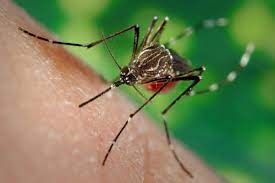
When it comes to mosquito-borne diseases, the name that often takes the spotlight is ‘Dengue Fever.’ It’s a menacing illness that has become a public health concern worldwide. This article offers detailed insight into dengue fever, its symptoms, the current treatment approaches, and the survival rate. Our aim is to keep you informed, promote awareness, and contribute to the global fight against this challenging disease.
What To Know About Dengue Fever
Dengue fever, often just referred to as ‘dengue,’ is a viral infection transmitted to humans by the bite of infected Aedes mosquitoes, primarily Aedes aegypti or Aedes albopictus. These mosquitoes are endemic in tropical and subtropical regions worldwide, thereby making dengue a common affliction in these areas.
The dengue virus (DENV) has four distinct serotypes (DENV-1, DENV-2, DENV-3, and DENV-4). Once infected, humans develop lifelong immunity to that particular serotype. However, subsequent exposure to different serotypes may increase the risk of developing severe dengue, also known as dengue hemorrhagic fever.
Symptoms of Dengue Fever
Dengue presents a wide spectrum of clinical symptoms, from mild fever to severe complications. Typically, the symptoms appear 4-7 days after the mosquito bite and last for up to 10 days. They may include:
- High fever (40°C/104°F)
- Severe headache
- Pain behind the eyes
- Muscle and joint pains
- Nausea and vomiting
- Swollen glands
- Rash
Some individuals may progress to severe dengue, exhibiting symptoms such as severe abdominal pain, persistent vomiting, rapid breathing, bleeding gums, fatigue, and blood in vomit. This condition is life-threatening and requires immediate medical attention.
Treatment of Dengue Fever
As of my knowledge, there is no specific antiviral treatment for it now. Management mainly involves supportive care based on the patient’s symptoms. Hydration is crucial due to the significant fluid loss that can occur with high fever and potential increased vascular permeability. In severe cases, hospitalization may be necessary to manage complications and provide supportive therapies, including fluid replacement and blood transfusion, if necessary.
While there is a vaccine for dengue fever (Dengvaxia), its use is somewhat controversial and limited to specific age groups in countries where dengue is endemic. Moreover, it’s not recommended for those who haven’t had dengue before due to the risk of severe disease upon subsequent infection.
Survival Rate of Dengue Fever
The survival rate is relatively high with appropriate medical intervention. While mild dengue fever has a near 100% survival rate, severe dengue if left untreated, can have a fatality rate of up to 20%. However, with adequate and prompt treatment, the fatality rate of severe dengue can be reduced to less than 1%.
Conclusion
It represents a significant global health burden, especially in tropical and subtropical regions. While efforts are being made in vaccine development and vector control, it’s crucial to be informed about the disease, its symptoms, and what to do if you or a loved one falls ill. Early recognition and appropriate treatment are key to reducing the mortality associated with severe dengue. Remember, prevention is better than cure – so take necessary measures to avoid mosquito bites, especially in regions where dengue is endemic.
Stay informed, and stay healthy!
Disclaimer: This article is for educational purposes only and is not intended as medical advice. Always consult with a healthcare provider for personal medical advice.














